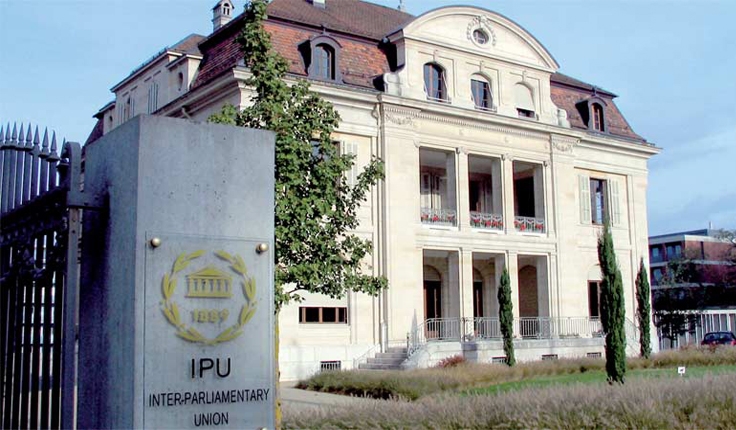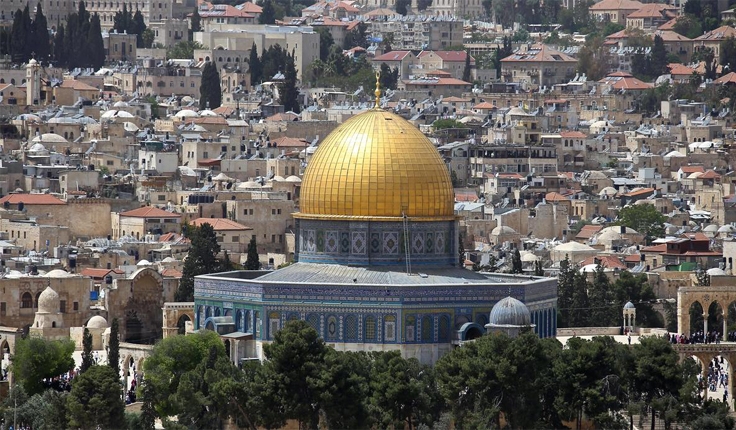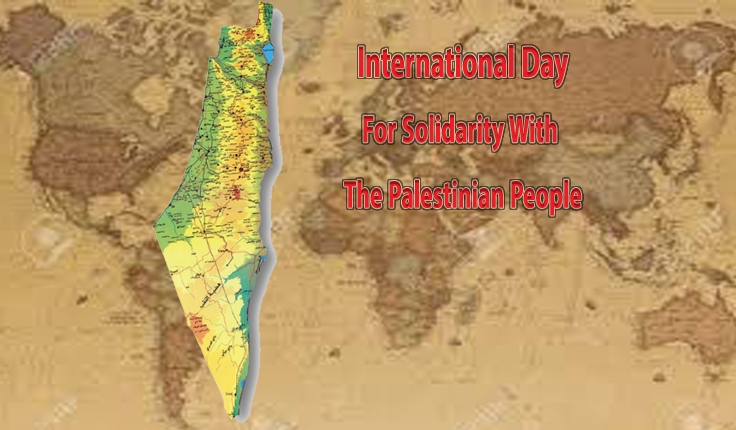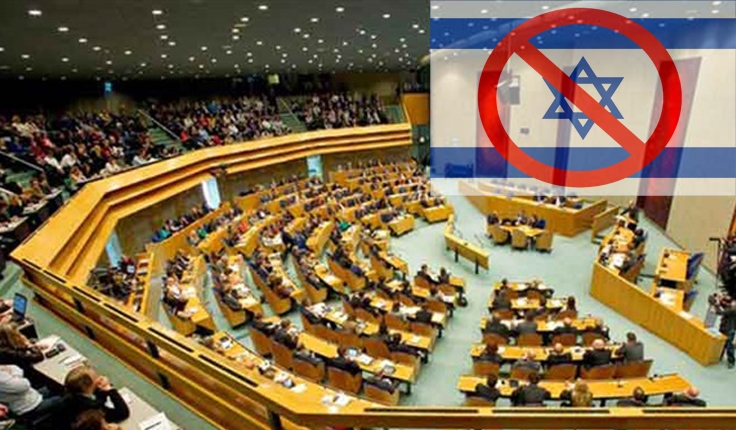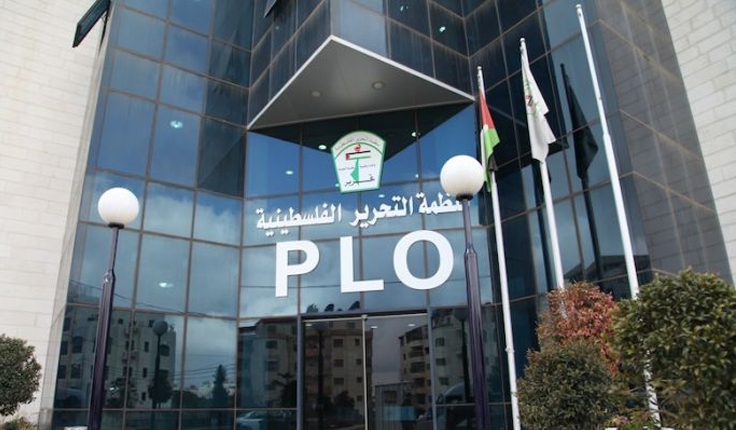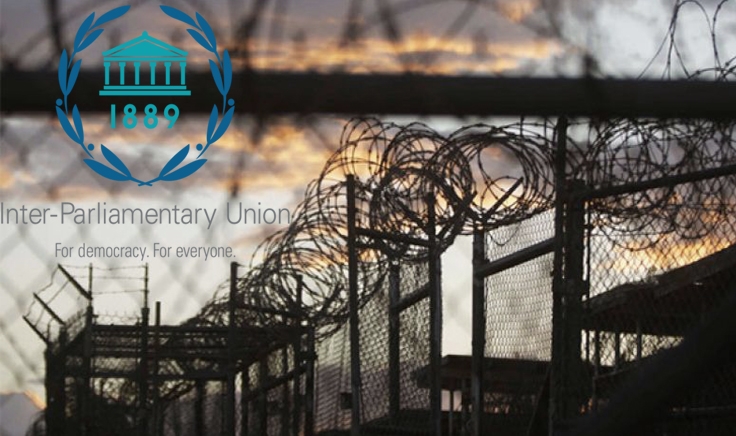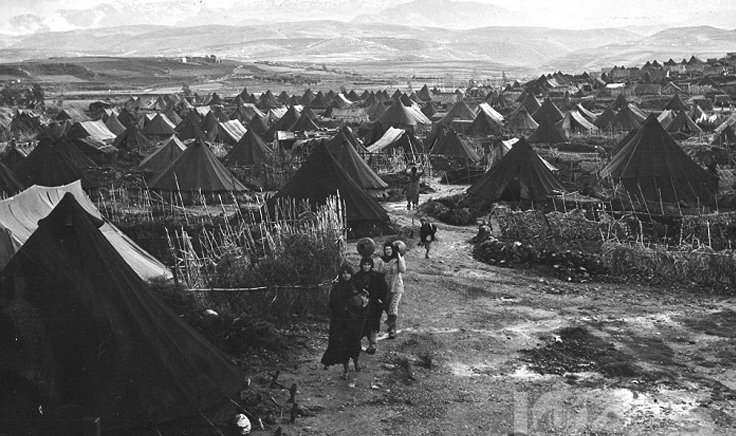The Inter-Parliamentary Union (IPU) confirmed that the decision taken by US President Donald Trump regarding the City of Jerusalem contradicts UN Security Council Resolution 2334 and will have consequences on the peace process in the Middle East.
The Inter-Parliamentary Union, in response to the letter from the Chairman of the Palestinian National Council, Saleem al-Zanoun, with regard to US President's decision, regretted the decision taken by the US administration to transfer the US Embassy from Tel Aviv to Jerusalem.
The IPU noted that the resolution undermines the legal and political status of a peaceful settlement between Israel and Palestine and any hopes for a two-state solution.
The IPU stressed that it would continue to pursue its efforts to promote dialogue and peace between the two parties, Israel and Palestine, and in the Middle East region.
The Palestinian National Council considers any American recognition of the occupied City of Jerusalem as the capital of the Israeli occupation state or the transfer of its embassy it, is void and illegal. It is a blatant aggression against the rights of the Palestinian people in the capital of its Palestinian State.
The Palestinian National Council (PNC) said in a press statement issued Sunday by the PNC Chairman, Saleem Alzanoon "That the attempt to undermine the legal and political status of the occupied Palestinian City of Jerusalem imposes on the UN Security Council and the United Nations an urgent responsibility to protect its decisions regarding the rights of the Palestinian people in the city of Jerusalem as the capital of the Palestinian state as stipulated in International resolutions and the latest UN resolution 2334".
The PNC stressed that it is the duty of the United Nations in accordance with its Charter and the duty of the countries of the world to protect the security and stability in the world that will be buried in the event of continued persistence of some great powers meddling the fate of the people and their rights guaranteed by international legitimacy, especially in light of the news being circulated by the media that the American Administration intent to recognize Jerusalem as the capital of the Israeli occupation state or transfer its embassy to it.
The PNC called upon all parliaments, regional and international parliamentary associations and the free world to declare their stance openly and stand up to justice, peace and the rights of the people, and to face this aggression and condemn it, those are represented by policies and practices that will lead to igniting further chaos and instability in the Middle East. Specifically, imposing incomplete solutions on the Palestinian people that does not meet the minimum rights stipulated in the resolutions of international legitimacy.
The PNC called on the international community and its institutions to translate their decisions and statements into actions that end the Israeli occupation and restore freedom for the Palestinian people and enable them to chose self determine, calling for the revival of the United Nations Special Committee against Apartheid.
The PNC reminds that the resolution of the partition of Palestine No.181 issued by the General Assembly of the United Nations on November 29, 1947, was issued against the will of the Palestinian people, followed in 1977 by another UN resolution that declared November 29th of each year as a day of global solidarity with the Palestinian people.
The PNC affirms in a press release issued in this occasion that the true solidarity and practical support for the Palestinian rights will obligate the Israeli occupation to implement the resolutions of the international legitimacy that the United Nations must defend and implement, so that our people will have full rights to return and establish their independent State with Jerusalem as its capital of June 1967.
The PNC stresses that the failure of the international community to punish Israel for to its continued violations of international law and the rights of the Palestinian people, has enabled it to impose apartheid through racist legislation, policies and practices racial discrimination, and to punish its perpetrators.
The PNC affirms that the Israeli occupation continues to defy international resolutions, the latest of which is resolution 2334, which considered Israeli settlement actions in the Palestinian territories occupied in 1967, including East Jerusalem, illegal and must be stopped immediately. Israel also continues to arrest thousands of our people. In response to this challenge, the PNC calls upon the United Nations to assume its responsibilities to establish the Palestinian State as it is stated in the second part of the partition resolution of Palestine No. 181, calling on the countries of the world that have not recognized the State of Palestine to recognize it.
The PNC appeals to the parliaments of the free world to support the just rights of our people to get rid of the occupation and to live in dignity on the same land as the rest of the people of the earth.
The PNC called on the regional and international parliamentary associations, governments, institutions and individuals to support the international boycott initiatives and impose sanctions on Israel's occupation and its parliament to dismantle the Apartheid system practiced in Palestine.
Palestine National Council Speaker Saleem AL Zanoun on Monday addressed a number of regional and international parliamentary associations on the resolution adopted by the Dutch Parliament on Thursday, November 2017, in which it calls on the Dutch government not to support any resolutions adopted by the United Nations or its various bodies against Israel, in particular the recent resolutions of the United Nations Educational, Scientific and Cultural Organization (UNESCO) and to take practical steps against states that support these resolutions.
The Speaker of the National Council Saleem AL Zanoun stressed that ” such biased resolutions give the pretext for Israel, the occupying power, to commit further violations and intransigence in the implementation of the relevant resolutions of international legitimacy and grant immunity to continue its violations of human rights in the occupied Palestinian territory “
In his letters, Al-Zanoun explained that the Dutch Parliament and its government must adopt positions that reflect its principles and commitment to international law and human rights and take all possible measures to ensure that Israel stops these violations and shows due respect for the law and the collective will of the international community, rather than ensuring that Israel, the occupying power , is immune from accountability or criticism, promoting impunity culture.
The Palestinian National Council rejects the position of the US administration not to renew the operation of the office of the Palestine Liberation Organization
The Palestinian National Council rejects the position of the US administration not to renew the operation of the office of the Palestine Liberation Organization
Amman, 19-11-2017
The Palestinian National Council confirmed its strong rejection of the position of the US administration on the non-renewal of the operations of the PLO office in Washington, calling on it to retreat from this step, which is seen as a reward for Israel's continued illegal settlement activities.
The Palestinian National Council said in a press statement issued by its president, Salim Al-Zanoon on Sunday: He rejects the American attempts to pressure the Palestinian side, and considers this step an unacceptable blackmail that is conflicting with the assumed role of the US as mediator and sponsor of efforts to revive the peace process.
The Palestinian National Council stressed that it is acceptable to link the non-renewal of the operations of the PLO office with the right of the Palestinian people to join the International Criminal Court and request that the court look into the Israeli war crimes such as settlement, treatment of political prison, impose the facts on the ground and open criminal investigation of Israel's aggression on the Gaza Strip .
Amman, 19-11-2017
The Palestinian National Council confirmed its strong rejection of the position of the US administration on the non-renewal of the operations of the PLO office in Washington, calling on it to retreat from this step, which is seen as a reward for Israel's continued illegal settlement activities.
The Palestinian National Council said in a press statement issued by its president, Salim Al-Zanoon on Sunday: He rejects the American attempts to pressure the Palestinian side, and considers this step an unacceptable blackmail that is conflicting with the assumed role of the US as mediator and sponsor of efforts to revive the peace process.
The Palestinian National Council stressed that it is acceptable to link the non-renewal of the operations of the PLO office with the right of the Palestinian people to join the International Criminal Court and request that the court look into the Israeli war crimes such as settlement, treatment of political prison, impose the facts on the ground and open criminal investigation of Israel's aggression on the Gaza Strip .
The IPU on Wednesday unanimously adopted a report by the Human Rights Committee of parliamentarians on human rights violations against several parliamentarians around the world, including Palestinian parliamentarians detained by the Israeli occupation authorities.
The report, concerning the Palestinian deputies, condemned the Israeli delegation lack of interaction with the union and refraining from attending a hearing on the circumstances of the detention of prisoners, despite repeated requests from the Committee to members of the delegation of the Israeli Knesset.
The ruling council of the Union today adopted two separate resolutions on Member of Parliament, MP Marwan Barghouthi and MP Ahmad Saadat, in addition to a clause concerning the rest of the detained prisoners, including MP Khaleda Jarrar. The report presented a summary of the background and conditions of their detention. The ruling council reiterated its deep regret at the continued detention of Barghouthi on the basis of an unfair trial 15 years ago, despite the fact that Israel is a party to the International Covenant on Civil and Political Rights and is obliged to respect it.
The ruling council also expressed concern about reports of the occupation authorities' threat to retaliate against Barghouthi for exercising his right to Hunger strike. The ruling council demanded information on the outcome of the agreement between Barghouthi and the Israeli prison administration, which led to a halt to the hunger strike.
The ruling council called for the immediate release of Barghouthi and Saadat, and until this happened, he called for improving the conditions of their detention and granting them the right to visit and providing official information from the Israeli side. Regarding the other deputies, the ruling council, in its decision, condemned Israel's resort to punishing Palestinian lawmakers through their arbitrary and repeated detention, and placing them under administrative detention without providing a legal evidence, and always relying on the so-called secret file.
The ruling council called on the Israeli authorities to present a copy of the indictment, which Israel is trying to prosecute, and called for their immediate release.
The ruling council included a reference to a report prepared by B'Tselem for human rights on the situation of the imprisoned parliamentarians and violations of their rights.
The Commission on Human Rights for parliamentarians in the Union has heard the Palestinian delegation, which reported on the conditions of detained prisoners in prisons under Israel's occupation
On November 2. 1917, a century ago, Arthur James Balfour, the British foreign secretary issued a pledge in a public letter to one of leaders of Zionist movement in Britain, Lord Walter Rothschild.
With the defeat of the Central Powers in 1918, the Conquerors divided up and redistributed among themselves the colonial possessions of the conquered powers. At the time, the league of Nations established a mandate system to be applied to those former colonial possessions that had been stripped away from Germany and Turkey in the aftermath of the first World War.
The mandates for Palestine was awarded by the league of Nations to Great Britain in 1922. The league mandate were divided into three categories in accordance with the league’s determination of the respective peoples’ stages of development concerning their preparations for national independence. Article 22(4) of the league Covenant provided that certain communities formerly belonging to the Turkish Empire, like Palestine“ have reached a stage of development where their existence as independent nations can be provisionally recognized subject to the rendering of administrative advice and assistance by a Mandatory until such time as they are able to stand alone. The wishes of these communities.” The Covenant stressed, “ must be a principal consideration in the selection of the mandatory”.
The British mandate failed to recognize the principles stipulated in Article 22 of the covenant, nor did the mandate take into account the pledges of independence made previously to the Arabsby the Allies. Quite the contrary , Britain has violated international obligations under the Covenant of the League of the Nations, and committed gross violations of the rights of the Palestinian people . The thing that imposes a duty of its accountability and load requirements and provisions of international responsibility. The British government issued the Balfour Declaration promising Jews a national homeland in Palestine, despite the fact that Palestine was among the most progressive and prosperous countries, and should not have been colonized or placed under the mandate of a great power.
Notwithstanding Israeli claims for legitimacy on the basis of the Balfour Declaration, Britain herself acknowledged in 1939 what an authority stated in a statement before the General Assembly on the question of Palestine in 27.11.1979 “ …by itself the Declaration was legally impotent. For Great Britain had no sovereign rights over Palestine, it had no proprietary interest, it had no authority to dispose of the land. The Declaration was merely a statement of British intentions and no more”.
The Zionist movement and its leaders considered that promise a legal document which supported the demands for establishment of a Jewish state in Palestine.
Having occupied Palestine in late 1917 and proclaimed it mandated territory in June 1920, the Palestinians constituted 97% of the population of Palestine , the total of Jews being only 3% of thepopulation . The Palestinians owned almost 94% of the lands, while Jews owned no more 1% of the total land.
To achieve the ultimate Zionist goal-the creation of a Jewish state- it was necessary to increase to the maximum the size of the Jewish community. All this happened with help and protectionism of the British colonialists. During 28 years of mandate, Britain turned colonial Zionist dreams into reality on the land of Palestine. Britain translated that through plans, actions, laws, creation of institutions, political structures, banks and economic institutions, and opened the doors of Palestine to Jewish immigration, shared the Jewish Agency in the management of Palestine, as well as, helped in establishing and consolidating Jewish settler gangs for confiscation of Palestinian lands for Jewish colonists arriving in particular from Europe, as well as arming and consolidating the Zionist presence, facilitating the access to Palestine the military and financial aid and fighters trained in Western armies, particularly British one which participated in the Second World War.
Such British policies, particularly, allowing the Zionists to organize the mass entry of Jews into Palestine, as well as helping them in reinforcing their positions in all political and economic spheres, through the enacting of a land Transfer Ordinance, which became effective as of October 1,1920, permitting unrestricted land purchase and sale. Which led to seizing lands, which for ages had belonged to the Palestinians. Moreover, intensive immigration led to substantial changes in the composition of population. Thus in 1948 the number of Jews-immigrants reaching something like 650 thousand. Such policies are, in reality, a crime unequaled in history against the Palestinian people, and it is not subject to prescription, the thing that necessitates accountability and prosecution of Britain.
The Palestine National Council recalls the speech of the Palestinian President Mahmoud Abbas at the U.N. General Assembly saying that the Palestinian people had suffered greatly because of the Balfour Declaration. “ we ask Great Britain, as we approach 100 years since this infamous declaration, to draw the necessary lessons and to bear its historic, legal, political, material and moral responsibility for the consequences of this declaration, including an apology to the Palestinian people for the catastrophes, misery and injustice this declaration created and to act to rectify these disasters and remedy its consequences, including by the recognition of the state of Palestine”. Abbas said : “This is the least Great Britain can do “.
While President Abbas demanded that Britain apologize for its issue and cancel the celebrations of its centenary. Britain promptly refused to apologize. Moreover, Prime Minister Theresa May said she was proud of Britain’s role in the document and wanted the British people to take pride in their country’s contribution to Israel’s statehood. She even invited Israeli Prime Minister Benjamin Netanyahu to come to England to join the celebrations.
In a recent letter to the Jewish National Fund UK, the British PM stated “ I am proud to be a friend of Israel and proud of Britain’s vital role in creating a homeland for the Jewish people”.
The Palestine National Council stresses that Britain cannot shirk its responsibility even after 100 years, that is why, it should recognize the suffering of the Palestinian people, the repercussions of the Balfour Declaration, the Palestinians’ right to self-determination and the recognition of the Palestinian State within 1967 borders. Britain should face its historic responsibility and atone for the big crime had committed against the Palestinian people.
The British government has steadfastly rejected Palestinian demands that Britain apologize for the declaration . Quite the opposite, May said “ The declaration was one of the most important letters in history, we are proud of our role in creating the state of Israel. While not apologizing , the Foreign Office statement didadmit and acknowledge that the document “ should have called for the protectionof political rights of the non-Jewish communities in Palestine, particularly their right to self-determination”. It was only in Palestine that the declaration with its inherent injustices and contradictions deprived the Palestinians of their independence, provisionally recognized in the Covenant, and created the conflict which had afflicted, and continues to afflict the Middle East and the entire world,
The Palestine National Council reaffirms that the British government bears full responsibility. First, for its issuing the declaration which was opposed to the wishes of the great majority of the people of Palestine, and second, as a mandatory entrusted with a “sacred trust” which compels the UK as the former Mandatory power, acting through the United Nation to ensure that there is no consistent pattern of human rights violations in the mandated territory. The International Court ofJutice has stressed that the concept of “sacred trust” must be interpreted as requiring effect to be given to the principle of self-determination leading to independence. Sadly, Britain has failed to take serious action to protect the human rights of the Palestinian people or to advance their independence.Moreover, .3Britain overtly infringed on the interests of the Palestinian people, and acting contrary to its mandate and pledge of assistance in obtaining independence.
The internationally wrongful act of a state entails its international responsibility that exists when conduct consisting of one act or omission is attributable to a state and constitutes a breach of an international obligation owed by that state.
The Palestine National Council asserts that the internationally wrongful acts of terrorism, ethnic cleansing, expulsion, confiscation of land, destruction of villages without military necessity and pillaging that were committed against Palestinian civilians and their possessions in the wake of the exodus of Palestinian refugees, which were conducted before the creation of Israel are attributed to Great Britain in its capacity as the mandate for Palestine, on the one hand, and Israel, on the other, under the intertemporal customary international law of state responsibility. The National Council further asserts on the responsibility of Israel for acts committed during and after the establishment of Israel. The state of Palestine demands that Israel provide full reparation i.e restitution, compensation and satisfaction and demands that Great Britain furnish reparation in the form of compensation and satisfaction in line with customary provisions of intertemporal international law.
On the basis of the above-mentioned facts, The parliamentarians of the Palestine National Council appeal to you to actively participate and strongly back our attempts and efforts to :
• Circulate this memorandum to all member states.
• Demand British parliamentarians of the Houses of Commons and Lords to turn their government away from organizing British –Israeli celebrations to mark the centenary of the Balfour Declaration with its disastrous consequences to our people.
• Demand British parliamentarians to call upon British government to bear its historic, moral and internationally legal responsibility for the consequences of this declaration for our Palestinian people who have suffered greatly because of the declaration.
• Appeal to the British government to rectify the grave injustice it inflicted upon the Palestinian people, correct the historical injustice it inflicted upon the Palestinian people when it issued the Balfour Declaration in 1917, apologize to the Palestinian people and compensate them, as well as recognize the State of Palestine on the 4 June 1967 borders.
• Actively pursue efforts to bring an end to the Israeli occupation of the State of Palestine within a set timeframe. It is no longer enough to issue generic, endless statements calling for an end to the occupation and the achievement of peace without a deadline. Efforts must be made to implement the Arab Peace Initiative, including a just solution for the Palestine refugee question in accordance with resolution 194.
• Urge those states that have not recognized the State of Palestine yet to do so, in fulfillment of the principle of equality, which can enhance the chances of peace. It is not understood how recognizing the State of Palestine harms the chances of peace, especially since we the Palestinians have recognized Israel on the 1967 borders.
- Balfour 100 | Repairing the World- why Britain should now recognise the State of Palestine
- The PNC Welcomes Interpol Admission of Palestine as Full Member State
- Israel gives Hebron settlers Municipal powers, in what critics say is An entrenchment of apartheid
- The Israeli occupation had been holding 249 Palestinian martyrs’ bodies since the 60s.

